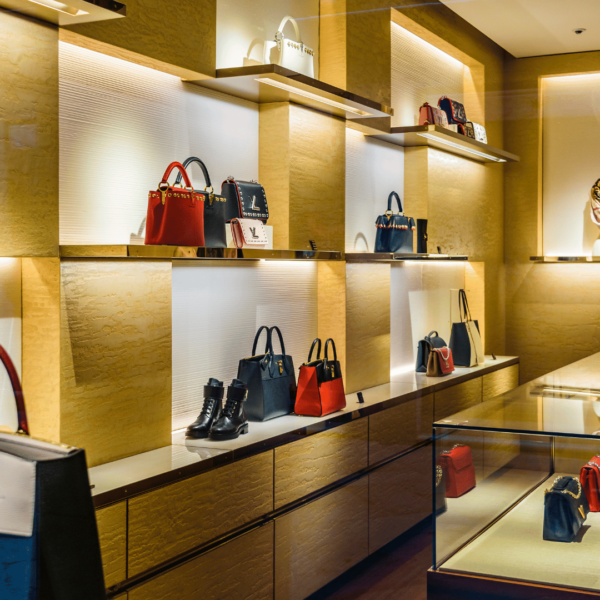
How are luxury brands thinking about leveraging the opportunities of NFTs and web3, and what challenges do they face?
Key takeaways:
- The global NFT market is projected to grow from $35 billion in 2022 to over $80 billion by 2025, at a CAGR of ~35%. The market grew 220x from 2020 to 2021.
- The global luxury brand market was valued at €388 billion in 2022 and is projected to reach €494 billion by 2026, growing at a CAGR of ~6%.
- Major luxury brands that have entered the NFT and Web3 space include Gucci, Louis Vuitton, Dolce & Gabbana, Burberry, Balenciaga, and Cartier.
Introduction
The luxury industry has been quick to embrace new technologies like NFTs (non-fungible tokens) and web3 as part of their business strategies. These technologies offer luxury brands new ways to engage with customers, drive revenue, and enhance brand image. Here are some of the ways in which luxury brands are leveraging NFTs and web3, the benefits they offer, and the challenges brands face in implementing these new technologies.
Luxury brands using NFTs
Many top luxury brands have already incorporated NFTs into their business models. Some examples include:
- Gucci – Sold an NFT video inspired by their 2021 fashion collection at auction for $25,000. Also created a 10,000 piece NFT collection with Superplastic and launched the Gucci Vault for metaverse, NFTs and web3.
- Dolce & Gabbana – Launched their “Collezione Genesi” NFT collection of digital and physical luxury items. The collection sold for $5.7 million at auction.
- Louis Vuitton – Created an NFT game where players collected NFT artworks. Also launched a collection of NFTs featuring their mascot Vivienne.
- Burberry – Partnered with the Blankos Block Party game to launch NFT accessories featuring Burberry’s signature style.
- Balmain – Launched NFT-based membership programme The Balmain Thread at Paris Fashion Week. Also launched NFT art collaborations.
Implementation of web3 in luxury brands
In addition to NFTs, luxury brands are also finding ways to incorporate Web3 technology:
- Virtual stores and metaverse presences – Brands like Gucci have opened virtual stores in metaverse platforms like The Sandbox. This provides exposure and a new sales channel.
- Digital clothing and accessories – Many brands now offer digital versions of their clothing as NFTs or wearables in the metaverse. This allows for new revenue streams.
- Blockchain tracking – Some brands use blockchain to track the provenance and authenticity of luxury goods. This helps combat counterfeiting.
- Cryptocurrency acceptance – Big names like Gucci and Balenciaga accept cryptocurrency as payment both online and in certain flagship stores.
Benefits of NFTs and web3 for luxury brands
There are several key benefits driving luxury brands to adopt these new technologies:
- New revenue streams – NFTs and metaverse presences open up new sales channels and revenue opportunities.
- Enhanced customer engagement – These technologies allow more interactive experiences that excite and engage younger demographics.
- Brand building – Early adoption positions brands as innovative and tech-savvy, enhancing their image.
- Combating counterfeits – Blockchain tracking of luxury goods helps prove authenticity and combat fake goods.
- Exclusivity – The scarcity of NFTs and digital goods plays into the luxury industry’s emphasis on exclusivity.
Challenges of NFTs and web3 for luxury brands
However, these new technologies also come with some challenges, including:
- High development costs – Creating NFTs, metaverse presences, and implementing blockchain is expensive.
- Technical barriers – These technologies require specialised technical knowledge many luxury brands lack.
- Uncertainty – The value and longevity of NFTs/metaverse presences is still unproven.
- Environmental concerns – Energy-intensive blockchains and NFTs face backlash over sustainability issues.
- Legal risks – Brands must be careful about copyright/IP issues when creating NFTs and digital goods.
Conclusion
In conclusion, NFTs and web3 present major new opportunities for luxury brands to generate revenue, enhance customer engagement, and build their reputation as innovators. However, these technologies require high investment and a careful approach to avoid pitfalls. Brands able to overcome the challenges stand to gain significant competitive advantages in the digital era. While still an emerging space, NFTs and web3 will likely play a major role in the future of the luxury industry.

